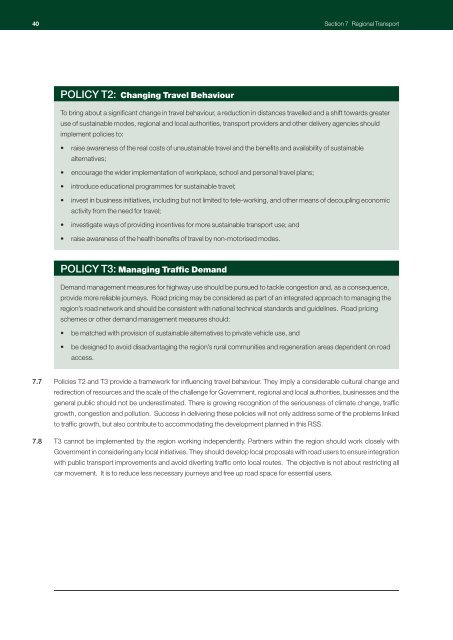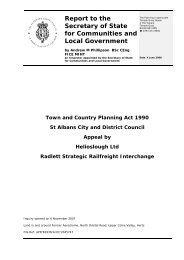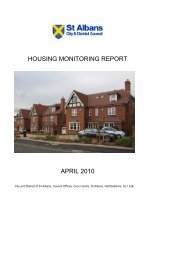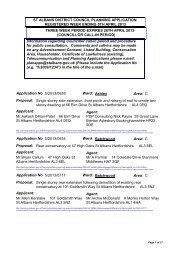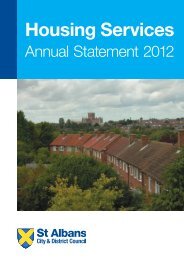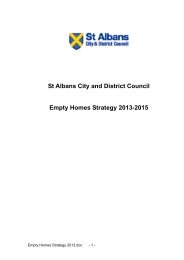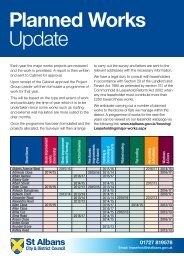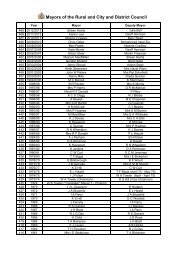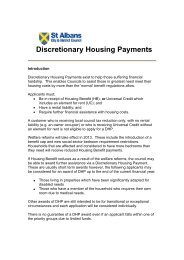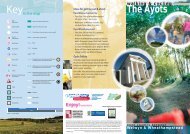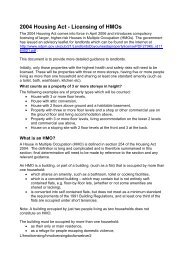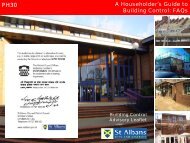RSS East Of England Plan - Broads Authority
RSS East Of England Plan - Broads Authority
RSS East Of England Plan - Broads Authority
Create successful ePaper yourself
Turn your PDF publications into a flip-book with our unique Google optimized e-Paper software.
40<br />
Section 7 Regional Transport<br />
POLICY T2: Changing Travel Behaviour<br />
To bring about a significant change in travel behaviour, a reduction in distances travelled and a shift towards greater<br />
use of sustainable modes, regional and local authorities, transport providers and other delivery agencies should<br />
implement policies to:<br />
• raise awareness of the real costs of unsustainable travel and the benefits and availability of sustainable<br />
alternatives;<br />
• encourage the wider implementation of workplace, school and personal travel plans;<br />
• introduce educational programmes for sustainable travel;<br />
• invest in business initiatives, including but not limited to tele-working, and other means of decoupling economic<br />
activity from the need for travel;<br />
• investigate ways of providing incentives for more sustainable transport use; and<br />
• raise awareness of the health benefits of travel by non-motorised modes.<br />
POLICY T3: Managing Traffic Demand<br />
Demand management measures for highway use should be pursued to tackle congestion and, as a consequence,<br />
provide more reliable journeys. Road pricing may be considered as part of an integrated approach to managing the<br />
region’s road network and should be consistent with national technical standards and guidelines. Road pricing<br />
schemes or other demand management measures should:<br />
• be matched with provision of sustainable alternatives to private vehicle use, and<br />
• be designed to avoid disadvantaging the region’s rural communities and regeneration areas dependent on road<br />
access.<br />
7.7 Policies T2 and T3 provide a framework for influencing travel behaviour. They imply a considerable cultural change and<br />
redirection of resources and the scale of the challenge for Government, regional and local authorities, businesses and the<br />
general public should not be underestimated. There is growing recognition of the seriousness of climate change, traffic<br />
growth, congestion and pollution. Success in delivering these policies will not only address some of the problems linked<br />
to traffic growth, but also contribute to accommodating the development planned in this <strong>RSS</strong>.<br />
7.8 T3 cannot be implemented by the region working independently. Partners within the region should work closely with<br />
Government in considering any local initiatives. They should develop local proposals with road users to ensure integration<br />
with public transport improvements and avoid diverting traffic onto local routes. The objective is not about restricting all<br />
car movement. It is to reduce less necessary journeys and free up road space for essential users.


